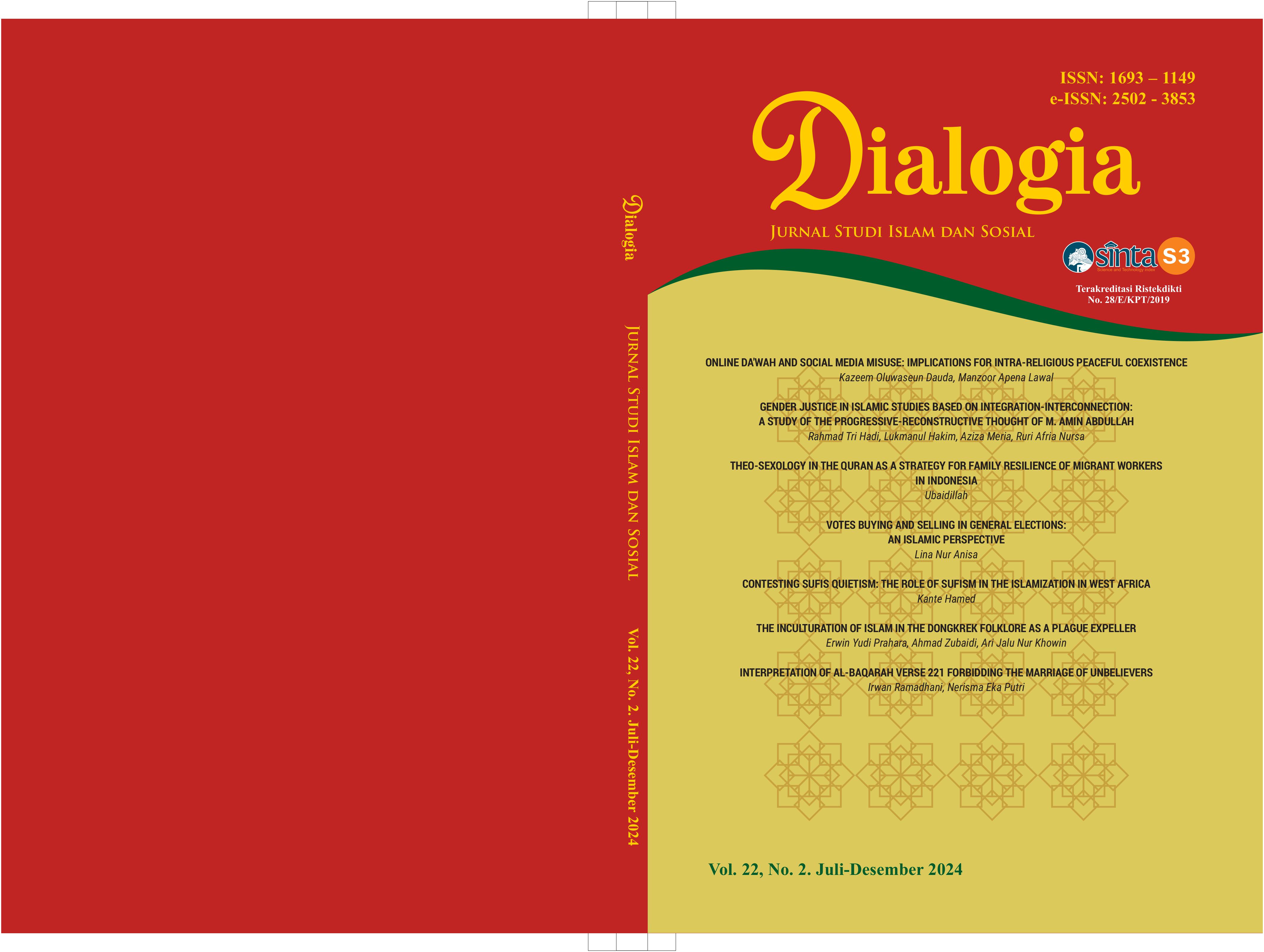Contesting Sufis Quietism: The Role of Sufism in the Islamization in West Africa
DOI:
https://doi.org/10.21154/dialogia.v22i2.9567Abstract
Sufism has been a key vehicle for expressing Islam. In the 18th century, its growth in West Africa led to a surge in Islamic conversions and the emergence of influential Muslim intellectuals, educators, and political leaders. Salafis, inspired by the writings of scholars who championed jihad and Islamic reforms, are often viewed as the sole jihadist group in the region. This study uses qualitative techniques and a historical lens to examine the significance of Sufism in West Africa, challenging the notion of Sufi passivity. It highlights key factors driving Islam’s expansion, paradigm shifts, and societal Islamization, while analyzing the Sufi Brotherhood’s methods of spreading Islam and shaping society. The research disputes the idea that Sufis are solely peaceful, non-political, or disengaged from activism. It focuses on how Sufis in West Africa not only spread Islam but also established states, governed people, and promoted Islam through conquest jihad. Contrary to popular belief, Sufism is not limited to political silence or spiritual withdrawal; it evolved through the Zawiya, who, despite persecution, played an active role in shaping society.
Downloads
Downloads
Published
Issue
Section
License
Copyright (c) 2024 Kante Hamed

This work is licensed under a Creative Commons Attribution-NonCommercial-ShareAlike 4.0 International License.
Dialogia : Jurnal Studi Islam dan Sosial allow the author(s) to hold the copyright without restrictions and allow the author(s) to retain publishing rights without restrictions, also the owner of the commercial rights to the article is the author.










